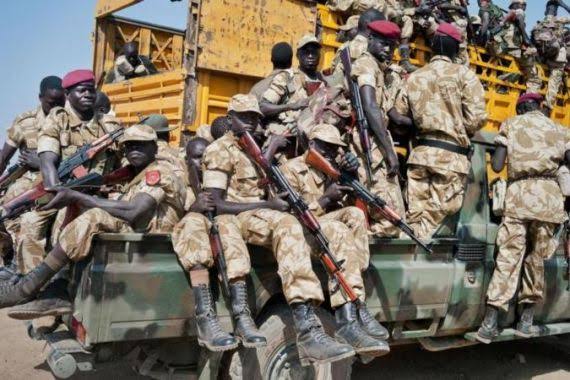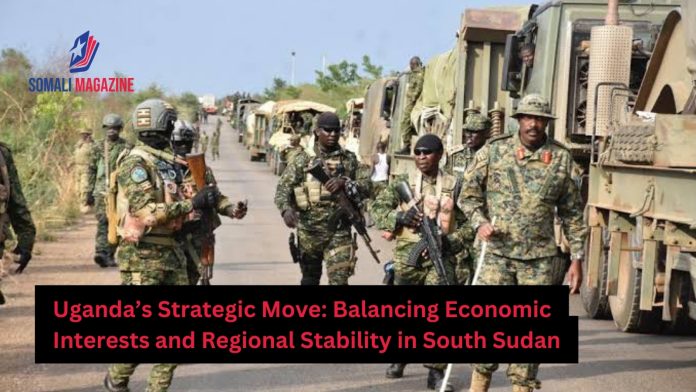Facebook Twitter Instagram Somali Magazine - People's Magazine
Uganda’s recent deployment of troops to South Sudan has sparked widespread debate, with analysts pointing to economic interests as a key factor behind the decision. The Uganda People’s Defence Forces (UPDF) were sent to Juba following a formal request from South Sudanese President Salva Kiir to Ugandan President Yoweri Museveni. While the official narrative emphasizes regional stability and solidarity, the move also underscores Uganda’s strategic economic priorities in its neighboring country.
South Sudan has long been a vital trading partner for Uganda, with thousands of Ugandan traders operating across the border. From agricultural goods to manufactured products, South Sudan is one of the largest importers of Ugandan exports, generating significant revenue for Uganda’s economy. The deployment of troops is seen as a proactive measure to safeguard these economic lifelines, which have been disrupted by ongoing conflict in South Sudan.
The instability in South Sudan has had direct consequences for Uganda’s border communities, particularly in the Acholi and West Nile regions. Waves of refugees fleeing violence have strained resources and infrastructure, creating social and economic challenges for Uganda. By bolstering Kiir’s government and securing Juba, Uganda aims to prevent further displacement and ensure the stability needed for cross-border trade and investment.
Uganda’s economic interests in South Sudan extend beyond trade. Ugandan construction firms and service providers have historically secured lucrative contracts during South Sudan’s post-conflict recovery phases. These opportunities vanish when violence flares, making stability in South Sudan essential for Uganda’s business community. The deployment of troops could pave the way for a more predictable business environment, benefiting both nations.
The decision to send troops also reflects Uganda’s broader regional strategy. Under President Museveni, Uganda has positioned itself as a stabilizer in East Africa, mediating conflicts and supporting peacekeeping efforts. The deployment reinforces Uganda’s reputation as a regional heavyweight and strengthens its influence in bodies like the African Union and the Intergovernmental Authority on Development (IGAD). Museveni’s close ties with Kiir further cement Uganda’s role as a key ally in South Sudan’s political landscape.

Critics, however, have raised concerns about the implications of Uganda’s involvement. Some argue that the deployment risks entangling Uganda in South Sudan’s complex political dynamics, potentially drawing the UPDF into prolonged conflict. Others question whether Uganda’s economic interests align with its stated commitment to regional peace and stability.
The deployment has also sparked controversy within Uganda. The decision was initially met with confusion, as military and government officials issued conflicting statements about the legality of the move. Uganda’s Parliament later endorsed the deployment, citing its alignment with the Constitution and the UPDF Act. Lawmakers emphasized the importance of protecting lives, restoring stability, and preventing the conflict from escalating further.
Despite the challenges, Uganda’s intervention in South Sudan highlights the interconnectedness of security and economic interests in the region. Stability in South Sudan is not just a neighborly favor; it is a national security imperative for Uganda. By addressing the root causes of conflict and fostering regional cooperation, Uganda hopes to create an environment conducive to economic growth and development.
As the UPDF continues its mission in South Sudan, the focus remains on balancing economic priorities with the need for peace enforcement. The deployment serves as a reminder of the complexities of regional conflicts and the importance of strategic decision-making in addressing shared challenges.

